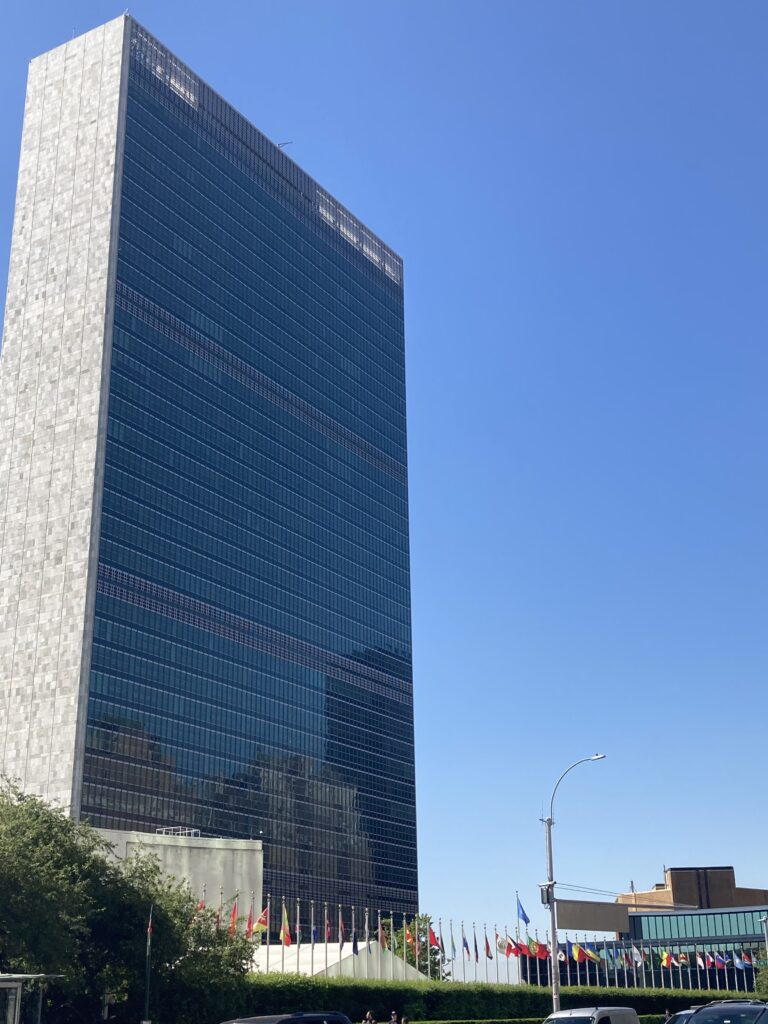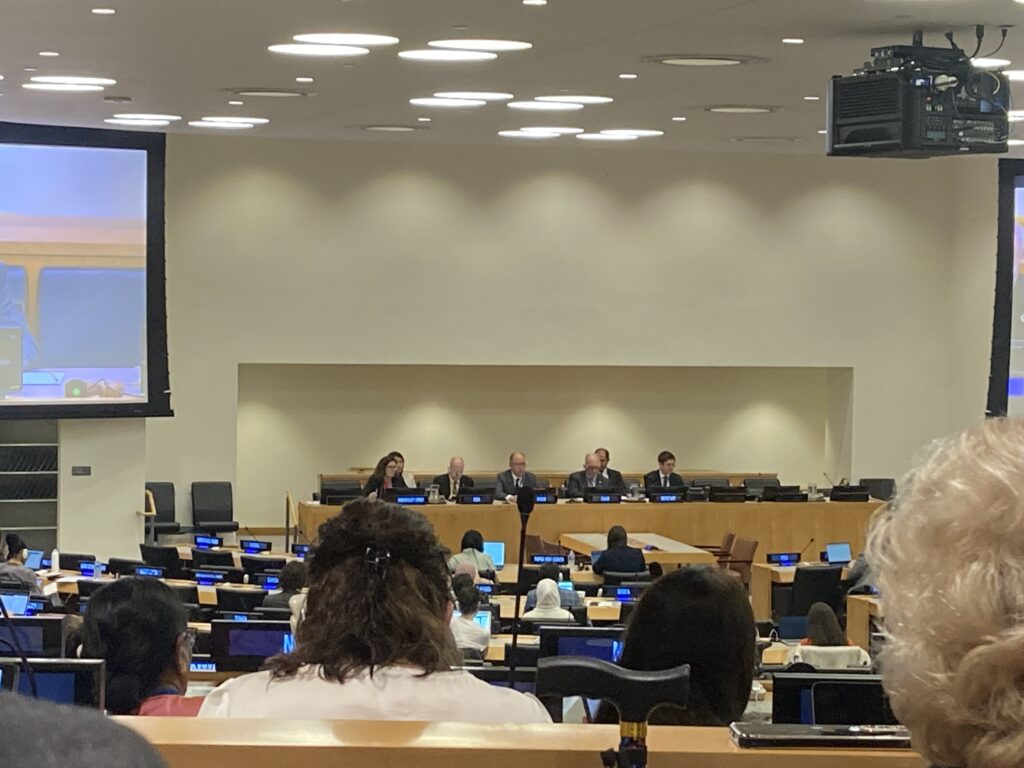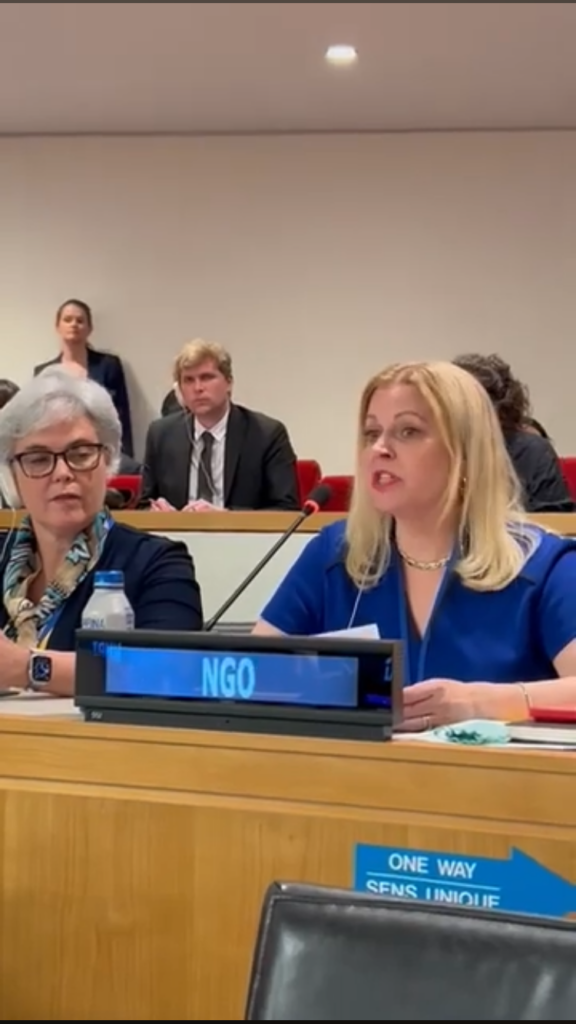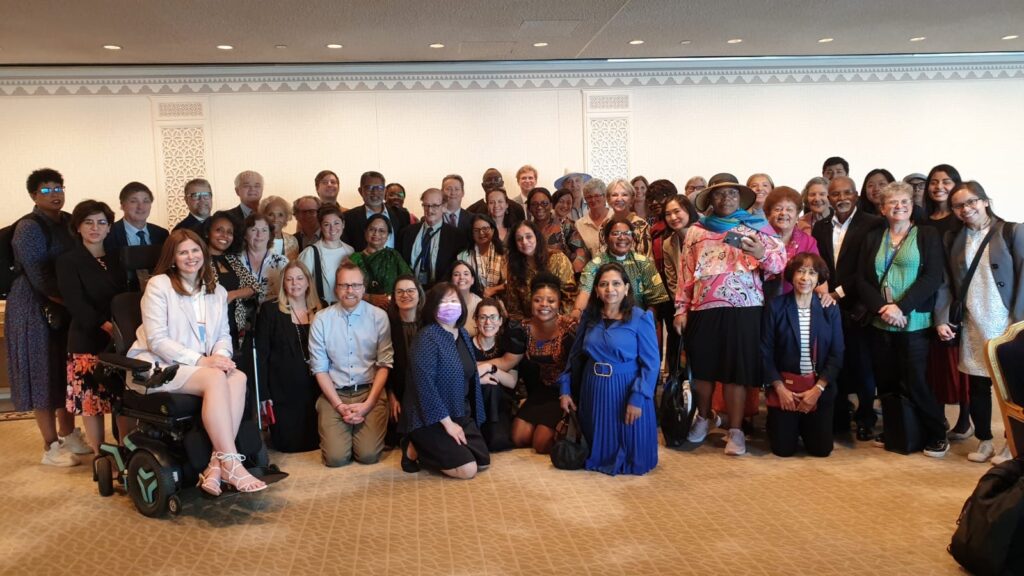The 14th session of the United Nations (UN) Open-ended Working Group on Aging, held from May 20th to 24th, 2024, marked a significant step forward in the promotion and protection of human rights among older persons. After years of discussions and active advocacy by civil society, significant progress has been made.

Established by the UN General Assembly, the mandate of the Open-ended Working Group (OEWG) is to assess the international human rights framework for older persons, identify gaps, and propose measures to address these gaps, including the feasibility of new instruments. This year, for the first time since its establishment in 2010, the OEWG adopted by consensus a series of recommendations encouraging UN member states to consider – among other options – an internationally legally binding instrument, namely a convention, to promote, protect, and ensure the recognition and realization of all human rights of older persons.
This unprecedented decision also mandates the president of the OEWG to present these recommendations for consideration by the General Assembly to promote further concrete discussions on the next steps for protecting and promoting the human rights of older persons.
EFFE, through its consultative status with the UN Economic and Social Council (ECOSOC), was able to submit contributions alongside other accredited non-governmental organizations and participate in this historic session held at the United Nations headquarters in New York. The adoption of this decision is the result of long-standing advocacy by civil society. For over 14 years, various NGOs in collaboration with the Global Alliance for the Rights of Older People (GAROP) and national human rights institutions (NHRIs) have highlighted gaps in the protection of older persons’ rights and advocated for the adoption of a new UN convention, both within the OEWG and between its annual sessions. This work at national and international levels has been essential in maintaining momentum, increasing support from member states, and ensuring that the voices of older persons across Europe are heard.

More recently, responses submitted to the questionnaire of the two co-facilitators, the permanent representatives of Portugal and Brazil, appointed by the OEWG in 2023, had a significant impact on the drafting of the recommendations, conducting intergovernmental negotiations, and seeking consensus, as the decision mentions that the recommendations stem from the responses submitted to the consultation.

The president of the OEWG acknowledged the significant commitment of NHRIs and NGOs, emphasizing that their active participation has always been crucial for the working group. In fact, this year, the 14th session welcomed a record number of NHRIs and NGOs from different regions of the world, whose contributions, before and during the session, played a significant catalyst role in achieving positive outcomes. Without the formal and behind-the-scenes mobilization of civil society, the option of a UN convention on the rights of older persons may not have been included in the list of recommendations. EFFE has been able to engage with many stakeholders involved since the establishment of this group, whose outstanding coordination work has allowed us to fully understand the issues, actively participate in all discussions, and join efforts with NGOs. Civil society and national human rights institutions (NHRIs) present at the 14th session thus coordinated to deliver key messages to member states. First and foremost regarding the way forward, any further action must include the full, effective, and meaningful participation of older persons, their representative organizations, civil society, and national human rights institutions. Specifically, the General Assembly should request the Human Rights Council to promptly establish an intergovernmental working group tasked with developing an internationally legally binding instrument (UN convention) on the human rights of older persons.
Numerous parallel sessions were also organized to facilitate discussions. For example, BAGSO, the German National Association of Older People’s Organizations, in collaboration with the Federal Republic of Germany, hosted a parallel event exploring the EU’s role in promoting the human rights of older persons. The event brought together Marco La Marca, a member of the cabinet of the Vice-President of the European Commission for Democracy and Demography, H.E. Ambassador Ana Jiménez de la Hoz, Deputy Permanent Representative of Spain to the United Nations, Tena Šimonović Einwalter, Ombudswoman of the Republic of Croatia, and Ken Bluestone, Policy Lead for Age International, to discuss the EU’s potential to promote the human rights of older persons, both internally and by supporting third countries and their role as a regional actor within the UN and at the multilateral level. The event concluded that the EU holds a unique and significant position within the UN and globally. Speakers emphasized the importance of collaboration between member states and the EU to implement significant changes. They highlighted the need for the EU to play a leading role in creating robust international protections for the rights of older persons and called for improvements in data collection and resource tracking to ensure effective implementation.
For several years, the European Commission did not participate in person in the OEWG. During this 14th session, the EU acknowledged in its final statement that more must be done to protect human rights in old age, welcomed the adoption of the recommendations, and committed to continuing its engagement with the OEWG and other relevant bodies on human rights.
While many EU member states participating in the 14th session highlighted ongoing efforts to improve their national normative and policy frameworks regarding the rights of older persons, most recognized the persistence of essential gaps, challenges, intersectional dynamics, and systemic discriminatory practices that hinder the full enjoyment of human rights in old age, impeding the quality of life of older persons. Some member states emphasized the need to address these gaps by developing a UN convention. Overall, the EU and its member states remained supportive or open without raising objections.

In the coming months, a new resolution of the General Assembly is expected to be adopted following the recommendations submitted by the working group.
[The decision is available here, but please note that we are awaiting the publication of an updated version including oral amendments].